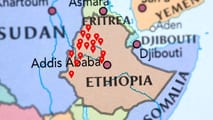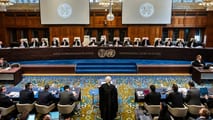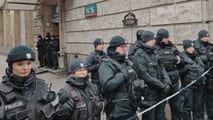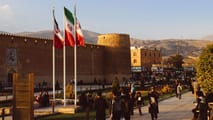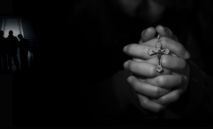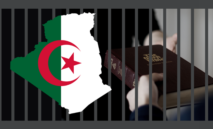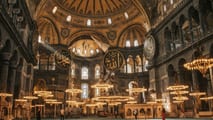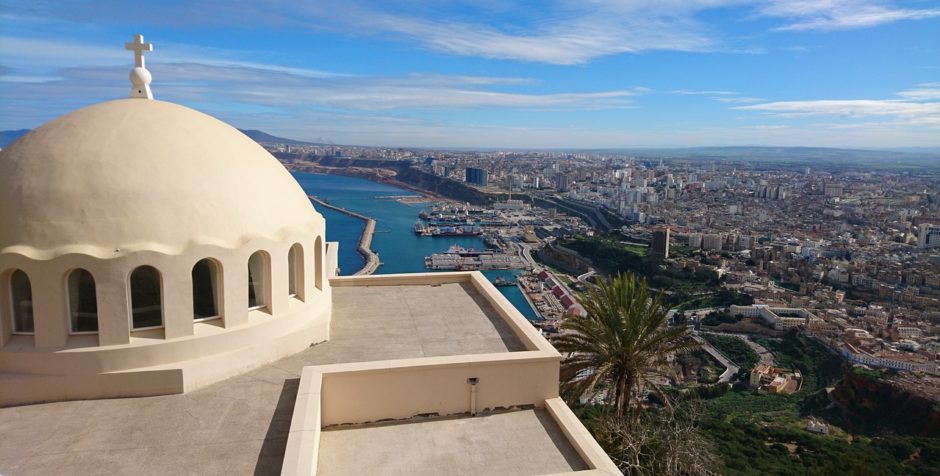

“Algerian Christians Represent a Source of Peace for the Country; Let us Preserve their Freedom of Worship!”
“Algerian Christians Represent a Source of Peace for the Country”
As Pastor Youssef Ourahmane, Vice-President of the Protestant Church of Algeria, appeared before the Court of Appeal of Tizi Ouzou on Tuesday, April 23, 2024, Thibault van den Bossche, Advocacy Officer at the European Centre for Law and Justice, reflects on the difficulties faced by Christians in Algeria.
Originally published in French in Le Figaro Vox.
In Algeria, only 4 out of 46 churches of the Protestant Church of Algeria (EPA) remain open. Algerian authorities no longer conceal their arbitrary deprivation of Algerian Christians' freedom to practice their faith freely, refusing to recognize either their places of worship or their authorization to form religious associations. Every worship gathering, every Christian assembly near a closed church, becomes forbidden. Pastor Youssef Ourahmane, Vice-President of the Protestant Church of Algeria, fell victim to this, and shared his testimony with the European Centre for Law and Justice (ECLJ).
Convicted in September and November 2023 for “celebrating an unauthorized worship service” in a “building not permitted for this purpose,” Pastor Youssef Ourahmane faces a one-year prison sentence. In March 2023, he oversaw a retreat with a few Christian families in a parish complex that housed a chapel forcibly closed by the authorities. He now awaits the verdict of the Tizi Ouzou Court of Appeal, which will be rendered on April 30, 2024.
The officially guaranteed freedom of worship
Presently, Algerian Christians are in a deliberate legal ambiguity fostered by the authorities, as the ECLJ has already pointed out. On the one hand, Article 51 of the new Algerian Constitution of 2020 states that “freedom of opinion is inviolable” and that “the freedom to practice religions is guaranteed, exercised within the limits of the law.” However, these freedoms do not extend to include freedom of conscience, which was constitutionalized as early as 1989 but removed in 2020. This regression in freedoms undermines the right to believe or not to believe and to change one's religion for Muslims.
On the other hand, by the ordinance of February 28, 2006, Algeria recognizes, without naming it, the Christian faith. In fact, the ordinance regulates the practice of “non-Muslim religions” (Article 1) and “guarantees the free exercise of worship” within the framework of “public order” and “good morals,” while recalling the primacy of Islam, the state religion (Article 2). In reality, this ordinance aims primarily to restrict conversions to Christianity, which have been increasingly numerous since the early 2000s.
The prohibition of “undermining the faith of a Muslim”
Actually, the 2006 ordinance provides a very restrictive legislative framework for the exercise of Christian worship, particularly regarding the official recognition of places of worship (Articles 5 and 7). For the approval of Christian religious associations, it is also necessary to comply with an additional law, that of January 12, 2012, on associations. All existing Christian associations were then obliged to re-register to comply with the new, stricter provisions, while Algerian authorities can arbitrarily refuse registration. The ECLJ has already alerted the UN Special Rapporteur on Freedom of Association and Assembly to these disproportionate requirements imposed by the Algerian authorities on Christian associations.
Furthermore, the 2006 ordinance imposes stringent penal provisions regarding apostolate, as it is prohibited to “convert a Muslim to another religion” or even to “undermine the faith of a Muslim” (Article 11). Thus, anyone who “produces, stores, or distributes printed documents or audiovisual materials” related to Christianity is liable to imprisonment for two to five years, making even the existence of a Christian bookstore impossible. Finally, Algerian Christians also suffer from a lack of freedom of expression, as their statements can easily be construed as blasphemy, heavily punished criminally (Article 144 bis 2 of the Algerian Penal Code).
The abusive application of Algerian laws
Algerian laws are a mirage. Not only do Algerian authorities close and seal churches, but even more so, they prosecute leaders if their communities do not cease to gather. Worse than the legal framework itself, its abusive application infringes both on the freedom of association and assembly of Algerian Christians, and ultimately, on their freedom of religion.
Algeria must therefore respect its international commitments in terms of human rights; and France and the European Union, with the means at their disposal, should ensure this. Algerian Christians pose no threat to the country but are instead a source of peace.



